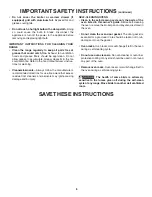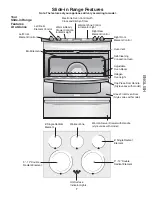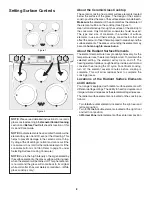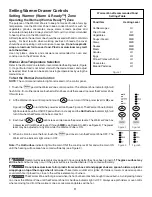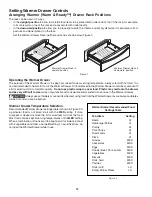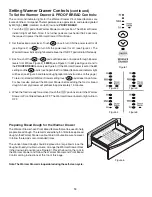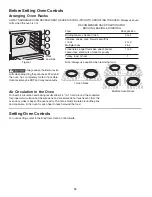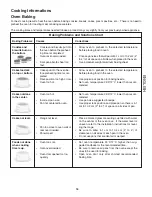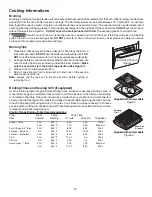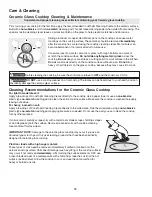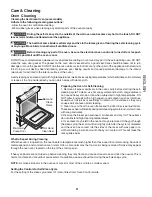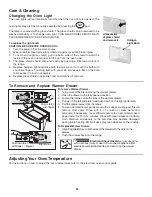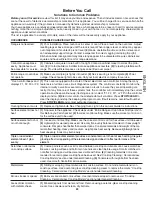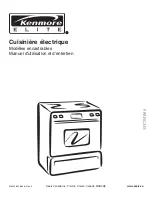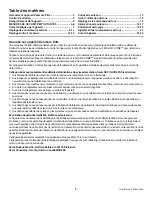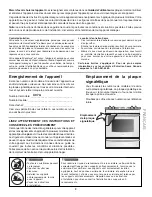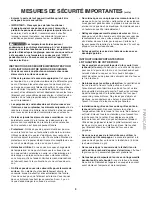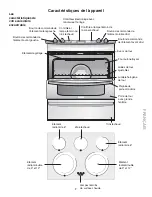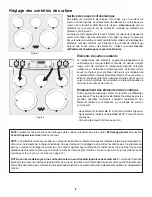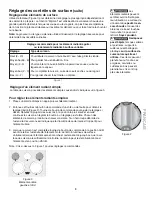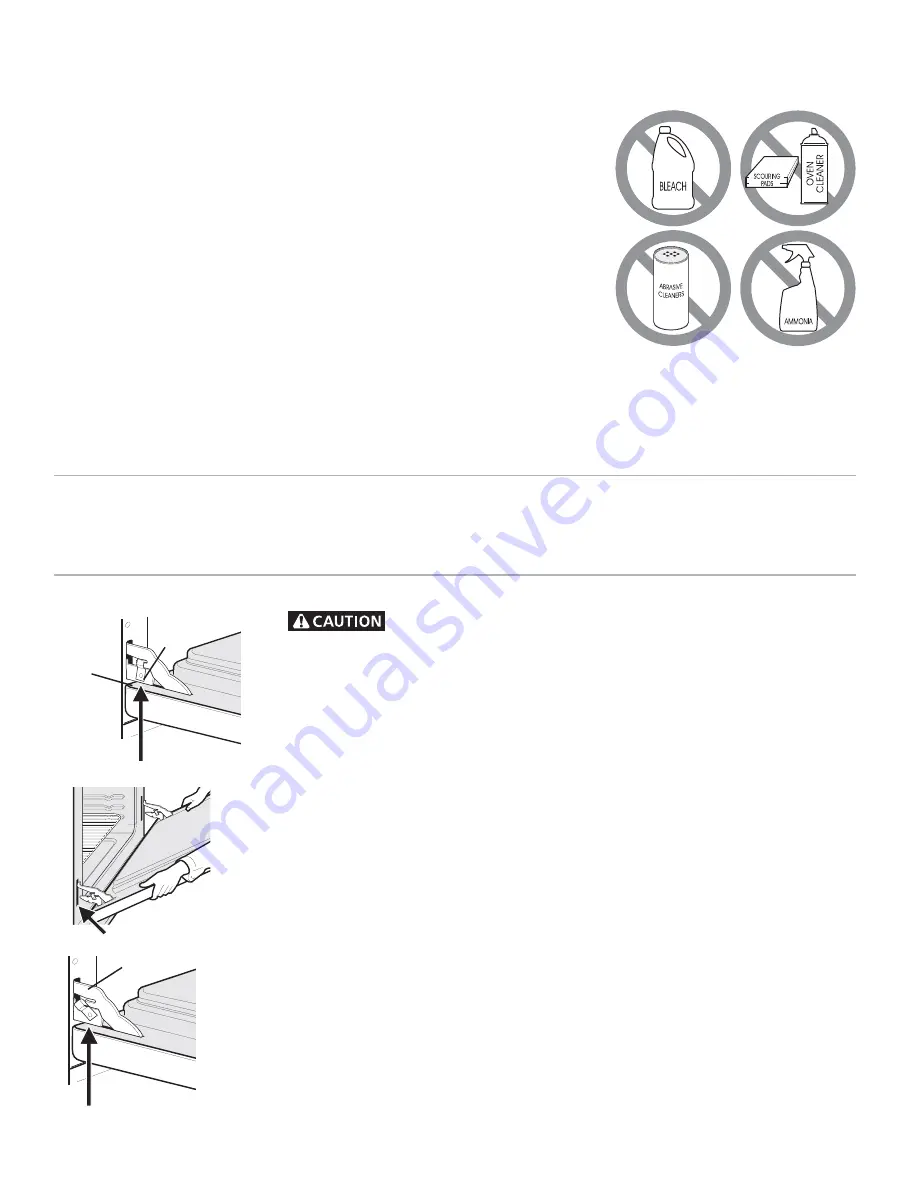
20
Hinge lever hook
Hinge
support
Lock engaged for door removal
Figure 1
HINGE SLOT - Door re-
moved from the oven
Figure 2
Lock in normal position
Figure 3
Hinge
lever
Care & Cleaning
Removing and Replacing the Oven Door
The door is heavy. For safe, temporary storage, lay the door flat with the
inside of the door facing down.
To Remove Oven Door:
1. Open the door to the fully opened position.
2. Pull up the lock located on both hinge supports and engage it in the hinge lever
hooks (Figure 1). You may have to apply a little downward pressure on the door to
pull the locks fully over the hinge lever hooks.
3. Grab the door by the sides and pull the bottom of the door up and toward you to
disengage the hinge supports. Keep pulling the bottom of the door toward you while
rotating the top of the door toward the range to completely disengage the hinge
levers (Figure 2).
4. To clean oven door, follow the instructions provided in the
General Care & Cleaning
table.
To Replace Oven Door:
1. Grab the door by the sides; place the hinge supports in the hinge slots. Open the door
to the fully opened position.
2. Disengage the lock from the hinge lever hooks on both sides (Figure 3).
Note: Make sure the hinge supports are fully engaged before unlocking the hinge
levers.
3. Close the oven door.
Special Door Care Instructions
-
Most oven doors contain glass that can
break.
Read the following recommendations:
1.
Do not close the oven door until all the oven racks are fully in place.
2.
Do not hit the glass with pots, pans, or any other object.
3.
Scratching, hitting, jarring or stressing the glass may weaken its structure causing
an increased risk of breakage at a later time.
Ceramic Glass Cooktop Cleaning & Maintenance (Continued)
Do not use the following on the ceramic glass cooktop:
• Do not use abrasive cleaners and scouring pads, such as metal and some
nylon pads. They may scratch the cooktop, making it more difficult to
clean.
• Do not use harsh cleaners, such as chlorine bleach, ammonia or oven
cleaners, as they may etch or discolor the cooktop.
• Do not use dirty sponges, cloths or paper towels, as they can leave soil or
lint on the cooktop which can burn and cause discoloration.
Special Caution for Aluminum Use on the Ceramic
Cooktop:
•
Aluminum foil-
Use of aluminum foil on a hot cooktop will damage the ceramic cooktop. Do not use thin aluminum
cooking utensils or allow aluminum foil to touch the ceramic cooktop under ANY circumstances.
•
Aluminum utensils
- The melting point of aluminum is much lower than that of other metals. Care must be taken when
aluminum pots or pans are used on the cooktop. If allowed to boil dry, not only will be utensil be destroyed, but it may
fuse to, break or mark the ceramic glass surface, permanently damaging the cooktop surface.
Care and Cleaning of Stainless Steel
Some models are equipped with stainless steel exterior parts. Special care and cleaning are
required
for maintaining the
appearance of stainless parts. Refer to the
General Care & Cleaning
table for detailed cleaning instructions.

